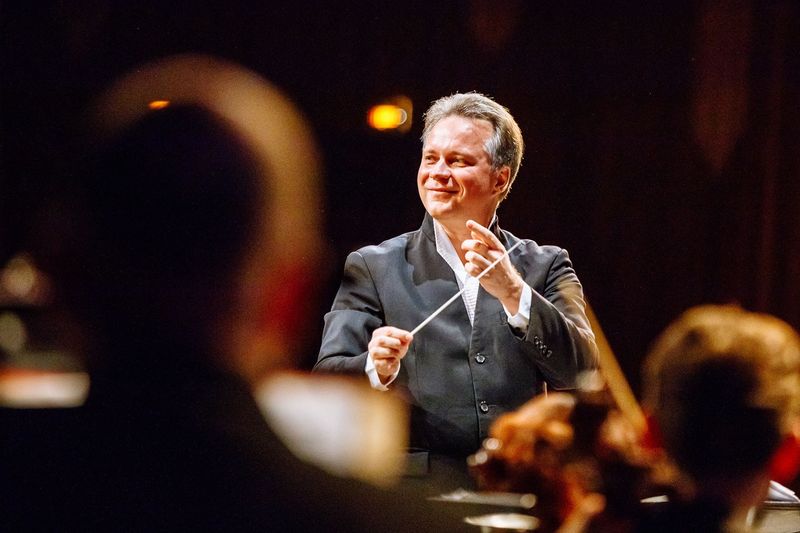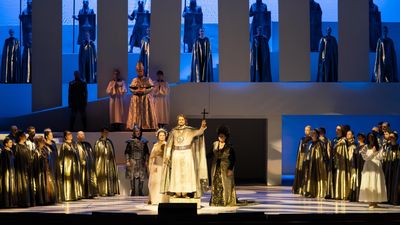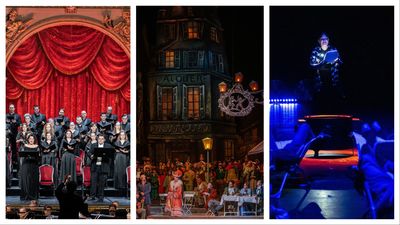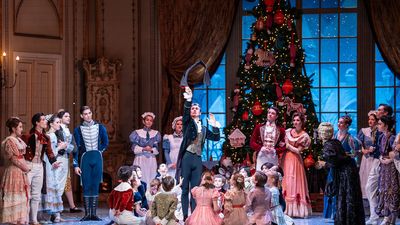
Beside gems of Czech, Polish, Slovak, and Croatian opera and classical music, a forgotten opera by Hungarian Ferenc Erkel and Dvořák's Symphony No. 9 also feature in the concert Golden Age – Slavs by the Hungarian State Opera Orchestra and Chorus on 2 June 2024. Soloists Kinga Kriszta, Zoltán Kelemen, and the ensembles of the Hungarian State Opera are conducted by music director of the Prague National Theatre, Andriy Yurkevych.
The first part of the symphonic concert to crown the 2023/24 Slavic Season of the Hungarian State Opera showcases emblematic works of Slavic national romantic music from East-Central Europe.
Bedřich Smetana's second opera, The Bartered Bride, composed in 1866, is the most popular piece in the Czech opera repertoire and the first to have been included in the international opera repertoire. The overture of the charming comic opera is a lively, playful, and cheerful orchestral piece, which draws a lot of inspiration from Czech folk music traditions and is often heard at symphonic concerts.
Halka, composed between 1846-47, proved to be the most important of twenty stage works by Stanisław Moniuszko, father of the genre of Polish national opera. In her aria from Act II, the heroine of the tragic village love story is still full of hope about her overwhelming love for Janusz, who once left her. The lyrical aria interpreted by Kinga Kriszta is counterpointed by the opera's solemn mazurka, reminiscent of Polish folk music traditions.
The programme also includes excerpts from the 1874 opera György Brankovics by the Hungarian composer Ferenc Erkel. The choral movement entitled Kolo, i.e. circle dance, is followed by the romance of Mara, daughter of the Serbian despot Brankovics, also performed by Kinga Kriszta. The forgotten opera featuring Serbian folk music motifs and Wagnerian influences by Erkel shows another side to the composer of Hunyadi László and Bánk Bán.
Continuing the South Slavic theme, a masterpiece by Croatian composer Ivan Zajc, the 1876 opera Nikola Šubić Zrinski commemorates the hero of the battle of Szigetvár from a Croatian perspective with music reminiscent of Verdi. The excerpt featuring in the concert is a patriotic duet of the hero and his wife, Eva, interpreted by Zoltán Kelemen and Kinga Kriszta.
The first part of the programme is concluded by a three-movement orchestral work by Eugen Suchoň, an outstanding figure of the 20th-century Slovak classical music and the creator of the Slovak national opera. The quarter-hour symphonic poem Mountain Suite (1957) is a grandiose, solemn work based on the folk music of the composer's homeland.
The second part of the concert features Antonín Dvořák's Symphony No. 9. The Czech composer, whose stage work Rusalka was staged earlier this season at Opera Budapest, was already a recognized composer throughout Europe when he was invited to become the director of the National Conservatory of Music of America in New York in the early 1890s. During his stay, he was greatly influenced by the music of the Native Americans and the gospels of the African-American communities. As a result, he composed his four-movement symphonic work also known as "From the New World" the year after his arrival. It was first presented at Carnegie Hall in 1893 and has enjoyed unbroken popularity ever since, especially due to the primary theme of its 4th movement.
The Hungarian State Opera Orchestra and Chorus are conducted by Ukraine-born, multiple award-winner Andriy Yurkevych, music director of the National Theatre in Prague. He has made a name conducting operas as well symphonic concerts. His career has taken him all over the world, he has appeared at the most important opera houses and concert halls of Europe as well as Chile and the USA.


